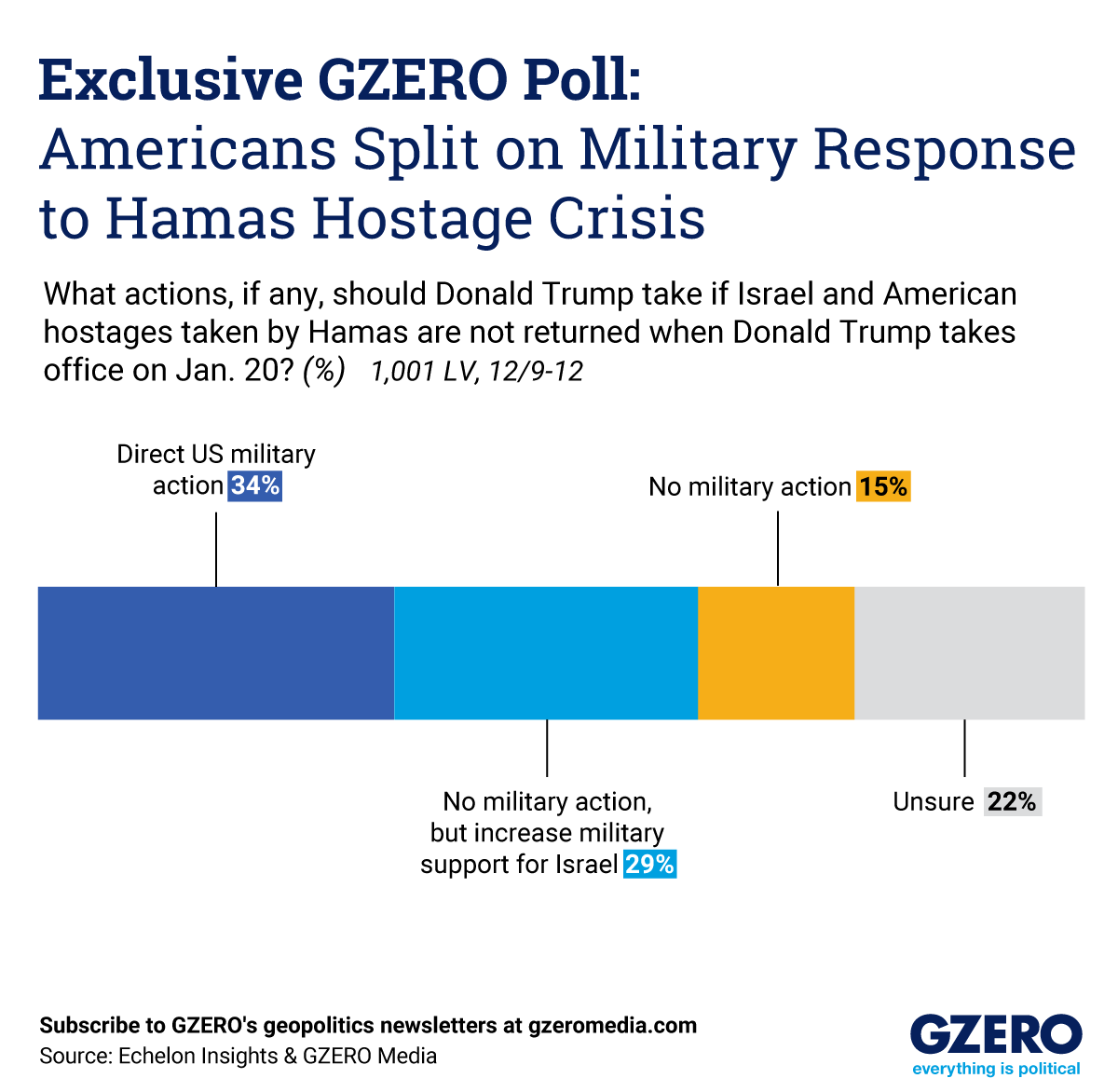Poll: Americans split on military response to hostage crisis
December 19, 2024
Luisa Vieira
As negotiations for a Gaza ceasefire enter what officials describe as a “decisive and final phase,” GZERO’s exclusive poll reveals deep divisions among Americans over potential US military involvement in securing hostage releases. The survey, done in partnership with Echelon Insights, comes as Israel and Hamas appear close to agreeing on a staged ceasefire plan that would include the release of remaining hostages.
Thirty-four percent of Americans support direct US military intervention if Hamas fails to release the remaining hostages, while 29% prefer increased military support to Israel without direct US involvement. Only 15% oppose any military action, while 22% are unsure.
The poll results emerge as peace prospects improve, with both Israeli and Palestinian officials signaling progress in negotiations. It’s also a process that the US is very keen to see succeed. Trump’s team has reportedly been working alongside Biden officials for weeks to secure a ceasefire deal before the president-elect takes office — with Trump repeatedlythreateningthat if the hostages are not home by Jan. 20, inauguration day, “all hell is going to break out.”